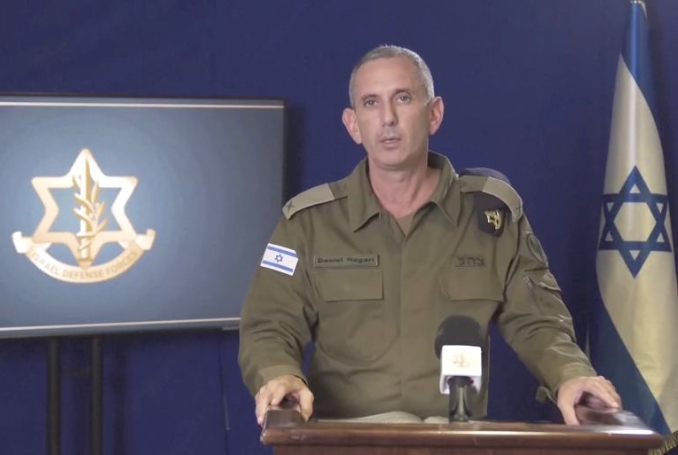
By Palestine Chronicle Editors
The Israeli army has always been frustrated with Netanyahu, even before the start of the war. But since October 7, the rift between the military and political establishments has reached new heights.
“Whoever thinks it is possible to destroy Hamas is mistaken,” Israeli army spokesman Daniel Hagari said in an interview with Israel’s Channel 13 on Wednesday.
“Saying that it is possible to destroy Hamas and to make it disappear is to throw dust into the public’s eyes,” Hagari added.
The latest statement is a complete departure from every single announcement that Hagari himself had made about Israel’s war objectives in Gaza. In his daily press statements, Hagari has described what seemed the systematic destruction of Hamas’ military capabilities throughout the Gaza Strip.
Hagari’s recent words also contradict the latest assertion by Israeli Prime Minister Benjamin Netanyahu where he, once more, insisted on a “total victory” in Gaza.
The contradictions can easily be attributed to the growing conflict between the Israeli army and the political establishment of Netanyahu and his far-right ministers in Tel Aviv.
Indeed, in an unprecedented episode, the Israeli army has declared a “tactical pause” in southern Gaza without consulting with its political leadership, a decision that raised the ire of Netanyahu and his allies.
“We have a country with an army, not an army with a country,” he said during a cabinet meeting on June 16.
The Israeli army has always been frustrated with Netanyahu, even before the start of the war. But since October 7, the rift between the military and political establishments has reached new heights.
Still, much of that tension was frequently contained due to the fact that the Israeli wars – in Gaza and Lebanon – were largely managed by a war council, which involved opposition leaders and individuals with high credibility within the military institution.
The anticipated resignation of Israeli opposition leader, Benny Gantz – who was the Chief of Staff of the Israeli army in 2014 – Gadi Eisenkot and others, and the subsequent dismantling of the war council changed the political dynamics that governed Israel throughout the last nine months.
The army now feels emboldened and is openly voicing its frustration due to the lack of a post-war political plan.
It must also be stated that while, indeed, the Israeli army has served a central role in the very foundation of Israel, a conflict of this nature is unprecedented.
Historically, Israeli generals are incorporated into the political establishment once they retire, or they tend to serve as consultants in major Israeli military manufacturing firms.
Netanyahu’s new political formation, however, has deliberately sidelined the military establishment altogether.
The Israeli military leadership must have realized that the post-war scenario in Israel must include the recentering of its political role as part of the political establishment. To do so, far-right characters such as ministers Itamar Ben-Gvir and Bezalel Smotrich, both with no military experience, cannot be part of the political formation of the ‘day after’ scenario.
This should explain the context of the current rivalry underway in Israel, the consequences of which are surely to be far-reaching.
(The Palestine Chronicle)







